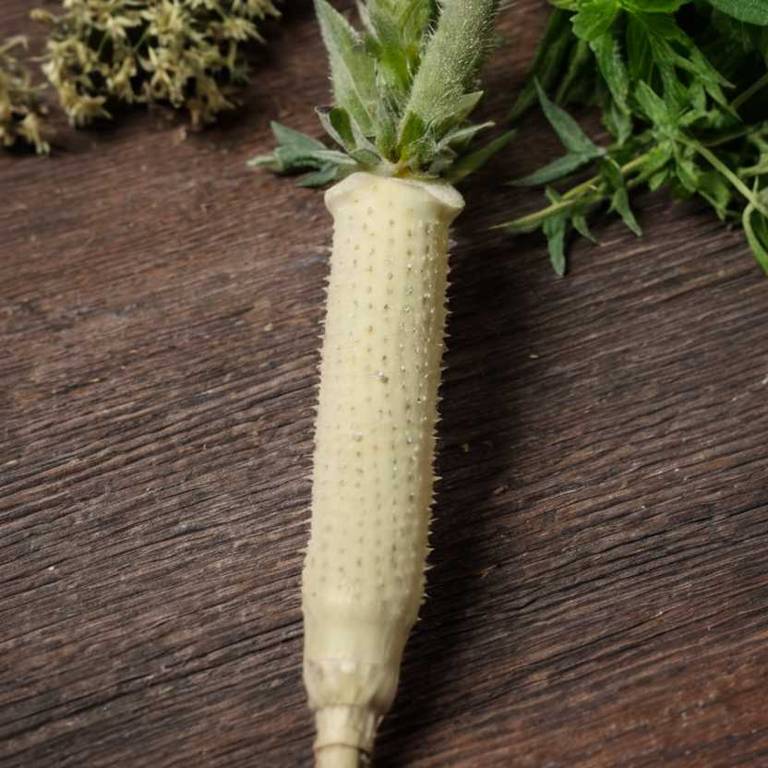By Leen Randell
Updated: Jul 06, 2024
10 Health Benefits Of Verbascum Thapsus (Mullein)

Verbascum thapsus, also known as mullein, has health benefits such as treating ear infections, sore throats, and respiratory issues.
The medicinal properties of mullein include anti-inflammatory and antiseptic compounds that reduce pain and swelling. Its benefits can be seen in improved sleep quality for people suffering from respiratory issues, enhanced skin health, and relief from chronic pain.
Additionally, mullein's expectorant properties can help alleviate bronchitis and asthma symptoms.
This article explains in details the 10 best health benefits of Verbascum thapsus.
1. Soothes respiratory ailments
Verbascum thapsus soothes respiratory ailments because of its potent anti-inflammatory and expectorant properties.
The plant's leaves and flowers contain mucilage, a thick, protective substance that coats the airways and reduces inflammation, making it an effective natural treatment for coughs, bronchitis, and other respiratory issues.
Additionally, mullein's expectorant properties help to loosen and clear mucus from the lungs, providing relief from congestion and wheezing.
2. Eases ear discomfort
Verbascum thapsus eases ear discomfort because of its anti-inflammatory and antimicrobial properties.
The plant's leaves and flowers contain mucilages, which soothe and protect the ears from irritation and infection. When used in ear drops or infusions, mullein helps to reduce swelling and alleviate pain associated with conditions such as middle ear infections, swimmer's ear, and earwax buildup.
Its gentle nature makes it a popular natural remedy for ear complaints.
3. Relieves coughing spasms
Verbascum thapsus relieves coughing spasms because of its unique combination of compounds.
The leaves and flowers of the plant contain rosmarinic acid, a potent anti-inflammatory that helps to soothe the mucous membranes in the respiratory tract. Additionally, the plant's flavonoids and triterpenoids work together to relax the muscles in the throat and bronchi, reducing coughing spasms and providing relief from congestion.
This natural remedy has been used for centuries to calm persistent coughs and restore respiratory health.
4. Reduces inflammation
Verbascum thapsus reduces inflammation because of its rich antioxidant and phenolic content.
The plant's compounds, including rosmarinic acid and flavonoids, have been shown to inhibit the production of pro-inflammatory enzymes and cytokines, thereby alleviating swelling and pain associated with inflammatory conditions such as arthritis and allergies.
Additionally, mullein's anti-inflammatory properties may also help protect against chronic diseases like cardiovascular disease and cancer.
5. Treats skin irritations
Verbascum thapsus treats skin irritations because of its anti-inflammatory and antibacterial properties.
The plant's leaves and flowers contain a high concentration of mucilage, a thick, protective substance that soothes and calms irritated skin. When applied topically, mullein helps to reduce redness, itching, and swelling, while also combating bacterial infections that can exacerbate skin issues.
This natural remedy has been used for centuries to treat everything from bug bites to eczema and acne.
6. Promotes wound healing
Verbascum thapsus promotes wound healing because of its rich antioxidant and anti-inflammatory properties.
The plant's leaves contain saponins, flavonoids, and phenolic acids that help reduce inflammation and oxidative stress at the wound site. This leads to improved tissue regeneration, collagen synthesis, and faster wound closure.
Additionally, mullein's antimicrobial effects prevent infection and promote a healthy environment for healing, making it a valuable herb in traditional medicine for treating various types of wounds.
7. Cleanses mucous membranes
Verbascum thapsus cleanses mucous membranes because of its unique combination of saponins and flavonoids.
These compounds have been shown to break down and remove excess mucus, reducing inflammation and congestion in the respiratory tract. Additionally, mullein's demulcent properties soothe and protect irritated tissues, allowing for healthy mucous production and drainage.
This natural remedy has been traditionally used to alleviate symptoms of colds, bronchitis, and other respiratory issues.
8. Calms digestive issues
Verbascum thapsus calms digestive issues because of its soothing and anti-inflammatory properties.
The plant's leaves and flowers contain rosmarinic acid, which has been shown to reduce inflammation in the gut, alleviating symptoms of irritable bowel syndrome (IBS), diarrhea, and other gastrointestinal disorders.
Additionally, mullein's astringent properties help to calm irritated mucous membranes, reducing discomfort and promoting digestive balance.
9. Alleviates diarrhea
Verbascum thapsus alleviates diarrhea because of its unique ability to soothe and protect the gastrointestinal tract.
The plant's leaves contain mucilages, which are natural emollients that help to form a protective barrier on the intestinal lining, reducing inflammation and irritation.
This calming effect helps to normalize bowel movements, reducing the frequency and severity of diarrhea episodes, while also promoting a healthy balance of gut bacteria.
10. Reduces muscle tension
Verbascum thapsus reduces muscle tension because of its ability to relax the smooth muscles in the body.
The leaves and flowers of the plant contain rosmarinic acid, a compound that has been shown to have a calming effect on the nervous system. When ingested or applied topically, mullein has been found to reduce anxiety and stress, which are common causes of muscle tension.
Additionally, its anti-inflammatory properties help to alleviate spasms and cramps, further contributing to its muscle-relaxing effects.